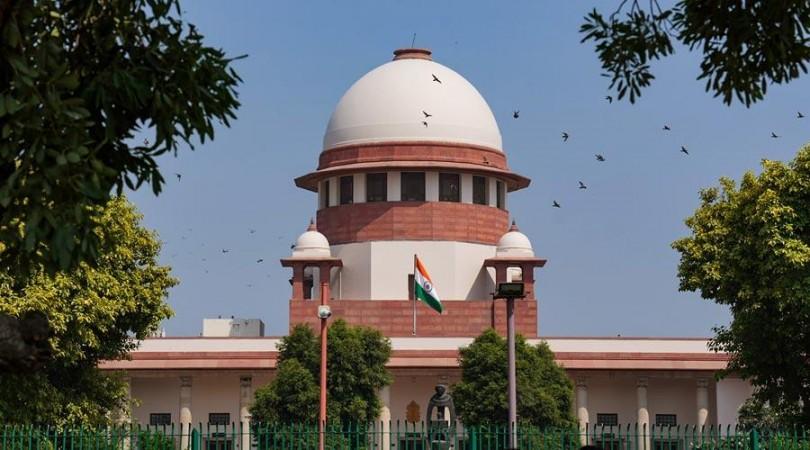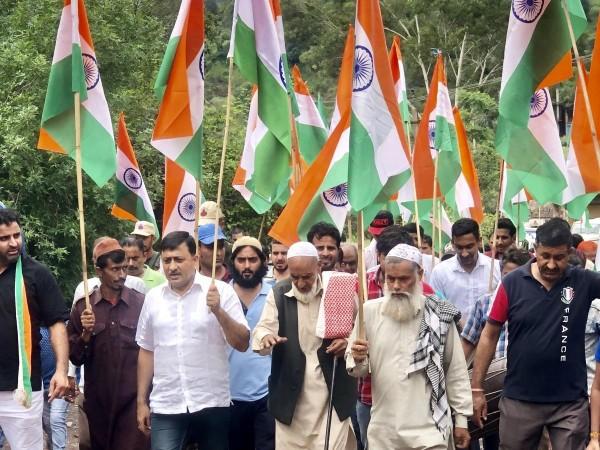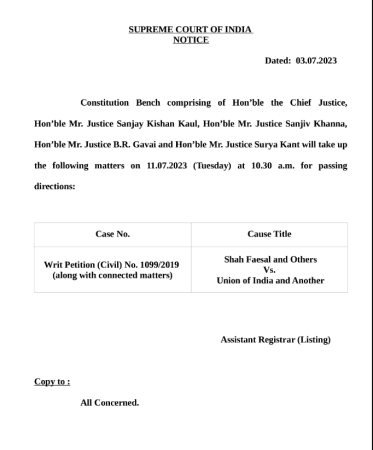A day before hearing of the petitions on the abrogation of Article 370, the Union Government on Monday defended its decision of August 5, 2019.
The Centre on Monday told the Supreme Court that the entire region of Jammu and Kashmir has witnessed an unprecedented era of peace, progress, and prosperity, with street violence, orchestrated by terrorists and secessionist networks, becoming a thing of the past.
The Union Government in its fresh affidavit before Supreme Court defended its decision of the abrogation of Article 370, saying the decision has started showing its impact on the common man of the region who is now getting accustomed to peace, prosperity, and stability with substantial income.
After the abrogation of Article 370 from Jammu and Kashmir life has returned to normalcy there after three decades of turmoil, the Centre informed the Supreme Court.

Schools, colleges, and universities are functioning without any strikes during the last three years, Centre to SC.
Hosting of the G-20 Tourism Working Group meeting at Srinagar in May 2023 was a watershed event in the history of valley tourism and the country "proudly displayed" its resolute commitment to the world that "secessionist/terrorist region can be converted into a region where even international dignitaries can be invited and global events can be held", Centre to Supreme Court.
Centre turns abrogation of Art 370 as a "historic decision"
The Union Government said that after the historic decision, the UTs of Jammu Kashmir and Ladakh have witnessed profound ameliorative, affirmative, and progressive changes in the last four years encompassing its entire governance - including developmental activities, public administration, and security matters which have positively impacted every resident irrespective of caste, creed or religion.
"The entire region since 2019 has witnessed an unprecedented era of peace, progress, and prosperity and life has returned to normalcy after over three decades of turmoil", the Government states.

A bench of five judges to hear petitions on Article 370
On July 7 Supreme Court notified the setting up of a new constitution bench, comprising its first five judges, to hear petitions challenging the abrogation of Article 370 of the Constitution.
The new bench is headed by Chief Justice of India Dhananjaya Y Chandrachud and includes justices Sanjay Kishan Kaul, Sanjiv Khanna, BR Gavai, and Surya Kant.

The case has been listed for directions on July 11 when the court is expected to issue procedural orders to make the matter for hearing on a future date. On July 11, the bench is also likely to take up a plea by Shah Faesal, a bureaucrat who was initially among the petitioners challenging the abrogation of Article 370, but later filed a request for withdrawing his petition.
Main petitioner Shah Faseal has withdrawn his petition in September 2022
Deputy Secretary in the Union Ministry of Culture and an Indian Administrative Services (IAS) officer Shah Faesal has withdrawn his petition from the Supreme Court challenging the Presidential order to amend some provisions of Article 370 of the Indian Constitution in September 2022.
Bureaucrat-turned-politician-turned-bureaucrat was among 23 petitioners who had challenged the Centre's decision to abrogate some provisions of Article 370.
Shah Faesal's decision to withdraw the petition comes months after he was taken back into the Indian Administrative Service in April this year and appointed Deputy Secretary in the Union Ministry of Culture.









!['Had denied Housefull franchise as they wanted me to wear a bikini': Tia Bajpai on turning down bold scripts [Exclusive]](https://data1.ibtimes.co.in/en/full/806605/had-denied-housefull-franchise-they-wanted-me-wear-bikini-tia-bajpai-turning-down-bold.png?w=220&h=138)



